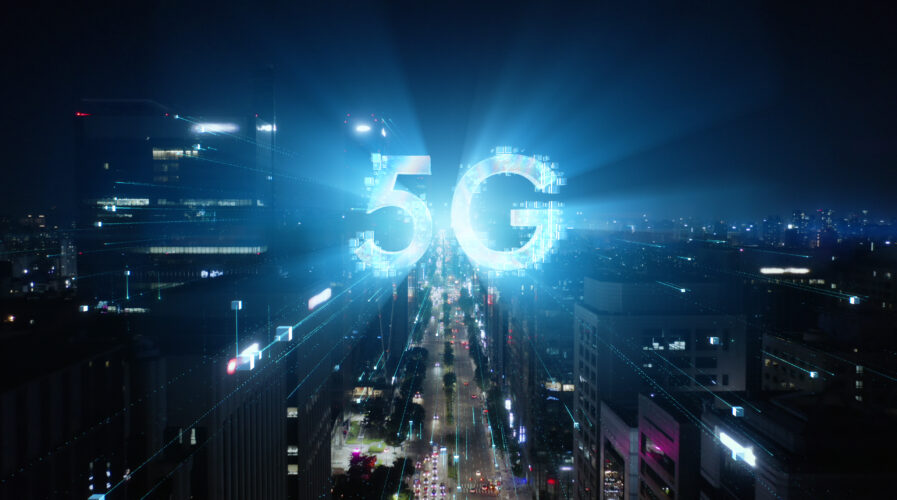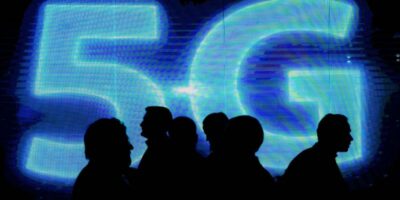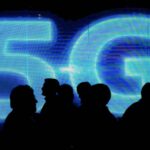
(Source – Shutterstock)
D-Day for 5G in Malaysia?
It’s the big day for 5G in Malaysia as the government is expected to decide if the country will proceed with its planned 5G rollout through Digital Nasional Berhad (DNB)’s suggested Single Wholesale Network or consider the proposals made by several mobile operators who want otherwise.
According to a report by The Star, the government is likely to green-light the implementation of the 5G dual wholesale network (DWN) model but the mobile network operators (MNOs) would be first offered the option to acquire direct stakes in 5G network by DNB.
Sources told The Star’s StarBiz that decision makers within the government are “leaning more” towards the DWN model as compared to the single wholesale network model where MNOs gain 5G access from a single provider for a wholesale price.
The 5G network deployment in Malaysia has been going through some major complications in the last few months. While DNB, the body that has been tasked with building the 5G infrastructure in the country initially announced the availability of the network last December, only one telco company is actively promoting its services.
In fact, there were actually two telco companies that initially accepted DNB Nasional’s 5G roll out, YES and TM. However, YES’s 5G coverage is only available within selected coverage areas in Kuala Lumpur, Putrajaya, and Cyberjaya while TM is still performing tests for its 5G service.
The other major telco providers in Malaysia, Maxis, Celcom, Digi, and U-Mobile have not accepted the national rollout. These telco companies have instead suggested a Dual Wholesale Networks model concerning the 5G rollout in Malaysia.
Last year, Ericsson was selected by the Malaysian government to develop the country’s 5G network infrastructure. Ericsson was going with a single whole network to be operated by DNB.
The Communications and Multimedia Minister Tan Sri Annuar Musa has tweeted that the government will decide on March 11th on the matter.
KKMM dan MOF telah melengkapkan siri “engagement” dgn pelbagai pihak mengenai roll out 5G.Memorandum Jemaah Menteri telah di siapkan dan di serah kpd Sekretariat. Ia dijangka di bawa pada 11hb mac utk keputusan.Semua pihak di minta tidak membuat spekulasi mengenainya. pic.twitter.com/ZBjjE7eNqZ
— Annuar Musa (@AnnuarMusa) March 3, 2022
A world-first 5G network solution in Malaysia
Meanwhile, Ericsson released a statement saying that their “offer was judged to be the most competitive” following recent comments regarding the award to them for Malaysia’s nation-wide 5G contract by DNB.
Ericsson also announced that the 5G network by DNB will be the first commercial network in the world to apply Dynamic Radio Resource Partitioning, a 5G Radio Access Network (RAN) Slicing solution that will enable six MNOs to deliver customized 5G services with guaranteed performance.
Customized 5G services are precisely what the Malaysian telco companies are interested in offering for their customers. Apart from consumer services, a huge potential of the benefits from 5G lies with its enterprise solutions. This includes network slicing capabilities for dynamic resource management and orchestration. This ensures fast and efficient delivery of services as well as the high-quality user experience required by diverse use cases.
According to Ericsson, each MNO sharing DNB’s network has access to the full spectrum asset to achieve the best possible speed, while simultaneously ensuring the pooled spectrum is efficiently used and maximized among all other MNOs. The Ericsson solution optimally provisions each MNO in order to ensure a good end-user experience. This allows each MNO to offer services that meet the Service Level Agreements (SLA) and provides guaranteed resources as configured.
Dynamic Radio Resource Partitioning is one of the features of Ericsson 5G RAN Slicing, a software solution that dynamically allocates spectrum resources at millisecond scheduling and supports multi-dimensional service differentiation handling across slices. RAN Slicing gives MNOs the differentiation and guaranteed performance needed to monetize 5G investments with diverse use cases, which drives value for the network with 5G as an innovation platform.
As such, MNOs will be able to offer innovative and high revenue-generating use cases through the Dynamic Radio Resource Partitioning as it sets the foundation for end-to-end slicing.
“Ericsson’s first-in-the-world application of our Dynamic Radio Resource Partitioning technology on DNB’s 5G Network is an example of our commitment to providing a world-class 5G network to Malaysia. This technology solution enables all six MNOs to deliver customized 5G services with guaranteed performance. This innovation also allows each MNO to differentiate its offering to consumers on the shared 5G network,” commented David Hägerbro, Head of Ericsson Malaysia, Sri Lanka, and Bangladesh.
With the decision now expected to be announced, recent conversations with local manufacturers in the country show concern about the delay of the network deployment. Many feel that Malaysia is already losing out to other Southeast Asian countries that are already deploying 5G use cases in the manufacturing industry.
At the same time, telco companies also seem adamant in having their way for 5G deployment. DNB has also warned that the cancelation of the current 5G deployment by Ericsson could lead to heavy compensation costs for the government as well.
READ MORE
- Strategies for Democratizing GenAI
- The criticality of endpoint management in cybersecurity and operations
- Ethical AI: The renewed importance of safeguarding data and customer privacy in Generative AI applications
- How Japan balances AI-driven opportunities with cybersecurity needs
- Deploying SASE: Benchmarking your approach


